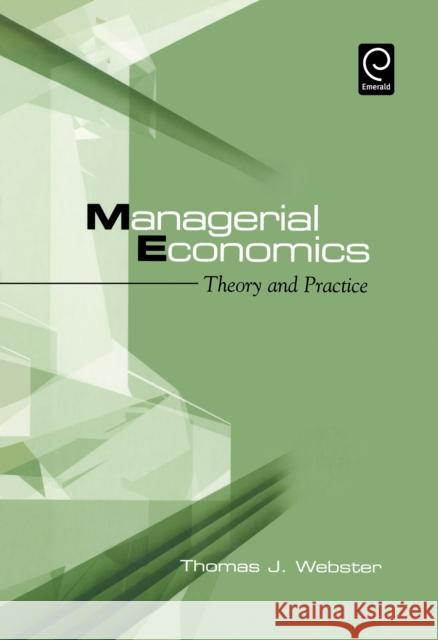Managerial Economics: Theory and Practice » książka
Managerial Economics: Theory and Practice
ISBN-13: 9780127408521 / Angielski / Twarda / 2003 / 739 str.
Managerial economics is the application of economic theory and quantitative methods (mathematics and statistics) to the managerial decision-making process. This book will appeal to students with limited prior training in economics and quantitative methods. It assumes that students will have had mathematics training at least through pre-calculus and that they have had a course in elementary statistics. It also expects students to have had an undergraduate course in intermediate microeconomics. The book includes these features: an Online Instructor's Manual; an Online Study Guide; a problem-solving approach to the study of managerial economics that combines the features of a standard managerial economics textbook with those of a separate study guide; a method for helping business students develop the analytical skills necessary for success in the study of managerial economics, finance, and management; and, a more extensive review of mathematical techniques than most comparable textbooks. It contains a separate chapter on game theory, including: noncooperative, simultaneous-move, one- shot games; cooperative, simultaneous-move, infinitely- repeated games (including collusions, cheating rules, and determinants of collusive agreements); cooperative, simultaneous-move, finitely- repeated games; focal-point equilibria; multistage games; bargaining with and without symmetric and asymmetric impatience. It contains a chapter on the time value of money and capital budgeting. There is the accentuation of risk, uncertainty, and the economics of information throughout Book. It is practice oriented, avoiding complex theoretical explanations with cumbersome notation. The problems are included in each section and are made integral to learning and understanding subjects. Math review uses economic relationships instead of general notation. There is excellent balance among motivation, theory, and examples, and clear exposition. It emphasizes utility and applicability, not innovation. Chapters conclude with: chapter review, key terms and concepts, chapter questions, chapter exercises, and selected readings.











